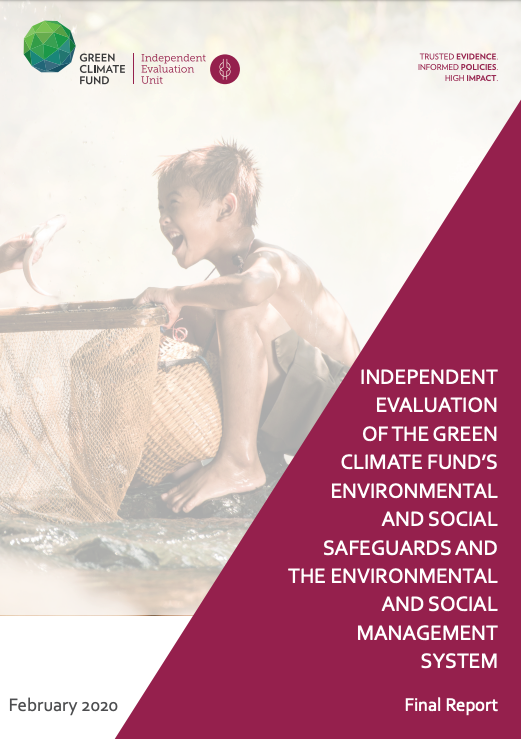The IEU releases evaluation of the GCF's Environmental and Social Safeguards Management System
In his 1962 classic text, ‘The Structure of Scientific Revolutions,’ Thomas Kuhn famously deconstructed paradigm shift and concluded that shifts in prevailing paradigms only occur when the world accumulates ‘anomalies’ that contradict current ways of thinking.
It is through this lens that we have examined the GCF’s environmental and social management system and its safeguards. Prevailing paradigms of environmental and social thinking have used Hippocratic ‘do no harm’ principles. Until recently, these were considered adequate.
This is no longer true. Organizations around the world realize that to save the planet we must adopt and realize responsible environmental, social, and governance principles. As a leader in this field, the GCF needs to set the standard, since environmental and social benefits are critical for any action in climate change. Indeed, for GCF investments and practices, the standard must be to create climate value through its investments.
My team and I are proud to have worked on this evaluation. We asked three main questions. First, to what extent does the GCF prevent, mitigate, and manage the potential adverse environmental and social impacts of GCF funded projects? Second, is the GCF effectively promoting environmental, social, economic, and development co-benefits and taking a gender-sensitive approach? Third, how well is the GCF monitoring and reporting environmental and social impacts and co-benefits?
Our main recommendations are:
- The GCF’s current Environmental and Social Management system and safeguards are not customized or relevant to GCF’s overall mandate. The GCF needs to urgently develop and adopt a new set of policies that reflect positive environmental, social, and climate value in its actions and investments. Specifically, it needs to cover gaps in the current system related to climate value, human rights, gender equity, and consent, among others. The GCF also needs to develop operational guidance to reflect these changed policies.
- The GCF needs to design its processes and operations, specifically accreditation and the Readiness and Preparatory Support Programme, to accommodate the focus on environmental and social performance and co-benefits. It also needs to better define its sustainable development criterion and make ‘equity’ a salient consideration.
- The GCF needs to operationalize its monitoring and accountability framework and assign roles and responsibilities in the Secretariat for designing, monitoring, reporting, and realizing environmental and social safeguards, performance, and co-benefits. It also needs to improve its tracking of environmental and social covenants in its reporting framework and consider building capacity for responsible investing amongst its stakeholders.
- The Project Preparation Facility has the potential to be an important modality. However, current processing times need to be faster, and strategy needs to be re-set so the Facility can focus on building capacities among promising and innovative projects.
- Members of civil society organizations are important GCF stakeholders. GCF needs to consider processes that resolve civil society concerns and develop a policy on stakeholder engagement. Greater awareness is required for grievance redress mechanisms in countries. This is especially important as GCF’s portfolio grows.
I hope you enjoy reading this report – and are galvanized into action as a consequence.
For the full report, please click here.
